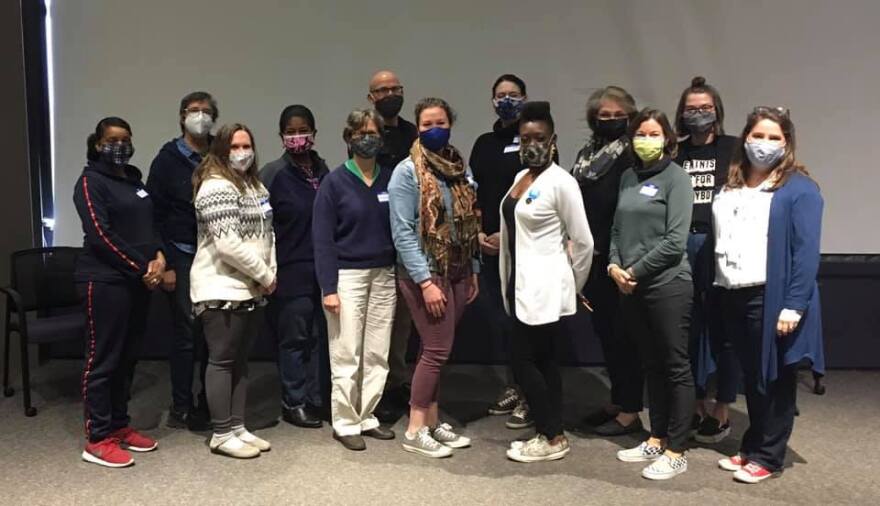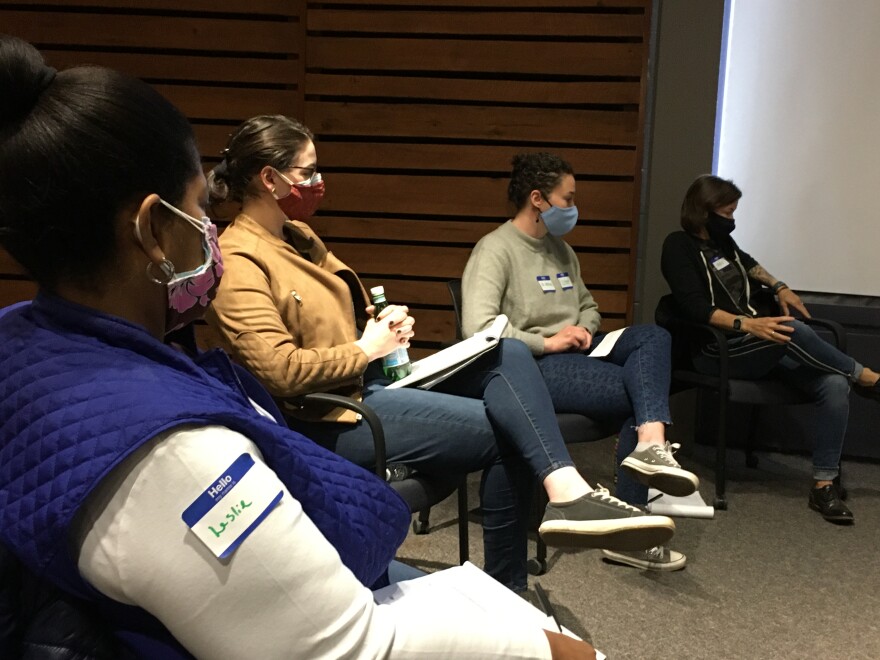A noisy party, a crumbling fence or a stolen candy bar could lead to a call to the local police. Centre County Community Conferencing would rather you call them.
Caryn Blanchard is the program coordinator for the project. She describes the process as an “intentional dialogue” where the people in conflict talk about their issue with the help of a facilitator.
“We bring in that entire community of people and those support people that are also invested and involved, and just walk them through a conversation. We like to say it's simple but it's not always easy," Blanchard said.
Community conferencing is the latest initiative from Center for Alternatives in Community Justice. It’s a free resource that anyone in Centre County can use.
The lead facilitator Elizabeth Siegelman said their job isn’t to guide conversations in a specific direction. Instead, facilitators are there to get discussion started.
“We're just there to facilitate you resolving your own issue because we believe that you have the power and the wisdom to do so," she said.
The facilitators are volunteers from the community who want to be a part of restorative justice in State College, Siegelman said. They were trained in April where they practiced different scenarios that could happen during a community conference.

Right now, Centre County Community Conferencing offers alternatives for neighborhood disputes and diversion from court for those who have committed minor crimes and. There’s also a reentry program for Centre County Correctional Facility inmates.
Siegelman said the reentry program is meant to help restore relationships that might have been hurt by a person’s incarceration, or their actions before they went to jail.
“Our goal is to bring the family members together with the person who's going to be released to help them rebuild those relationships and to make pathways of communication, so that when they're released, they can be successful on the outside," Seigelman said.
The program got its roots in Maryland with Restorative Response Baltimore. Executive director Larell Smith-Bacon said community conferencing is a part of restorative justice as a whole. It’s inspired by the teachings of the New Zealand Maori indigenous group.
“Restorative justice is a philosophy and a set of practices, rooted in indigenous teaching that emphasize our interconnection by repairing relationships when harm occurs while proactively building and maintaining relationships to prevent future harm," she said, quoting David Ryan Castro-Harris of Amplify RJ, a restorative justice organization.
Smith-Bacon said Baltimore has seen success with community conferencing. It’s allowed communities to grow closer. The program has a 95% agreement rate, meaning most people have reached an agreement on how to resolve an issue. Then, 98% of those people stick with the agreement they’ve created.
“I do believe that there are connections that are built, and communities built so that's the other aspect. It's not only resolving conflict when it arises," Smith-Bacon said. "It's bringing people together and spaces and places to facilitate stronger connection."
Center for Alternatives in Community Justice executive director Evelyn Wald hopes conferencing will allow people — especially minority communities — to feel more comfortable with police. They’re asking police to send people to community conferencing instead of court.
“My hope is that when the community sees that the police is partnering, and they want the community to be unified and grow and heal as much as we do, that that will have a tremendous impact," Wald said.
Blanchard wants to see Centre County grow the program once it picks up steam. She wants to offer community conferencing to businesses and organizations in the future.
“I think the next step is to really open it up to other systems, you know other systems that have obvious conflict going on and perhaps we can step in and help," Blanchard said.
Wald said the program is currently preparing its first community conferences. The program is currently open to taking on more conferences and training more facilitators.




